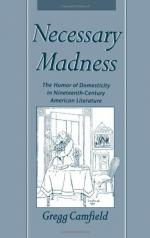|
This section contains 14,536 words (approx. 49 pages at 300 words per page) |

|
SOURCE: "'Preaching to the Nerves': Psychological Disorder in Sensation Fiction," in A Question of Identity: Women, Science, and Literature, edited by Marina Benjamin, Rutgers University Press, 1993, pp. 192-222.
In the following essay, Shuttleworth examines how Victorian sensation fiction exploited the language and concepts of psychology, and why the novels were so heavily criticized. Shuttleworth maintains that the novels challenged the Victorian "culture of control" by emphasizing the value of "feminine 'sensation'" over the often faulty "masculine reason."
The sensation fiction of the 1860s shared with the emerging science of Victorian psychiatry a preoccupation with psychological excess. Authors such as Mary Braddon, Wilkie Collins, and Mrs. Henry Wood focused their attention on forms of action and feeling that violated the rules of normative social behavior. The novels of the sensationalists (a loose term that embraced a wide variety of authors) were ones of high incident and passion: murderous impulses...
|
This section contains 14,536 words (approx. 49 pages at 300 words per page) |

|


